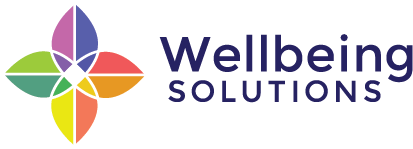The 5 P's for Finding Joy in Work and Life
Recently, a client challenged me with the question, “Is it really possible to live in joy – at least most of the time?” He happened to ask me this on the same day I was teaching about the balance between working and playing for the international health and wellness coaching certification course that I’m a trainer for, so this topic was fresh in my mind.
After reflecting on the conversations we had in class, along with what I’ve seen clients struggle with and what I’ve struggled with in my own life, I believe the answer to that question is a resounding YES! Not only is living in joy doable, but I believe it’s what we are meant to do. I am certain that when we prioritize joy (which, to me, is equatable with love), not only are we happier, but a ripple of positivity is extended to the world around us.
Prioritizing joy might feel a bit odd, even counter-cultural, because it is not something we are trained to do. For many of us, the message to “work hard” was so strong in our upbringing, that work has become the measure of our worth. To help you shift towards bringing more joy into your work and life, I’ve come up with these 5 P’s for finding joy.
· Presence – Savor the micro-moments! I can’t say enough about cultivating the habit of present-moment awareness. Too often, we let our minds pull us into ruminations of past events or worry about future ones. With our minds chattering about what’s next on the to-do list, we miss the taste of the food we eat, the sounds of the birds just outside the car window, or the twinkle in the eye of the barista serving our coffee. Savoring brings us into what’s right in front of us, and typically there’s so much more than we first notice.
· People – As human beings, we are hard wired to connect with others. In the last decade, there have been major breakthroughs in the scientific knowledge about the brain, mind, and relationships. Daniel Siegel, PhD, says that the little part of our brain called the insula helps us perceive emotional states in other people and create resonance with them. He calls this “mindsight” and describes it as the joining of minds, or mutuality, that helps people feel “felt.” This connection happens when we pause briefly enough to prioritize the people we’re with. Recognizing our shared humanness, accepting and connecting with others helps everyone feel better.
· Purpose – Ancient yoga philosophy teaches that each of us has a unique purpose in life – an idea that’s consistent with all spiritual teachings I’ve encountered. This purpose is something that we’re meant to do, in a way that no one else can. And when we don’t align our lives with whatever that is for us, we suffer. We’re meant to be happy, and to feel good about what we’re bringing into the world. If you’re not clear on what that is for you, getting clear on your values is a great place to start.
· Passion – Bringing your full self into whatever you’re doing makes it more fun. It doesn’t matter if it’s a chore or an activity you don’t like very much. Doing anything with resistance is like dragging around a ball and chain and drains your energy. Choose what you commit to mindfully. Ask yourself: “Does this bring me joy?” or “Can I bring joy into this?” Minimize your involvement in things where you can’t find a way to bring joy.
· PLAY!!! – This is a fundamental experience for health that’s often overlooked by “responsible adults.” We see the value of play in helping kids learn, create, explore, and express themselves. But somewhere along the way, we adults traded in play for work and tamped down our yearning for playful experiences. Play frees up our creativity, enhances our ability to live in flow, and naturally brings us joy. Finding small ways to bring a sense of playfulness into work and home life helps sustain us until we get time for play breaks. Scheduling play breaks on a regular basis is key to staying connected to joy in your life.
